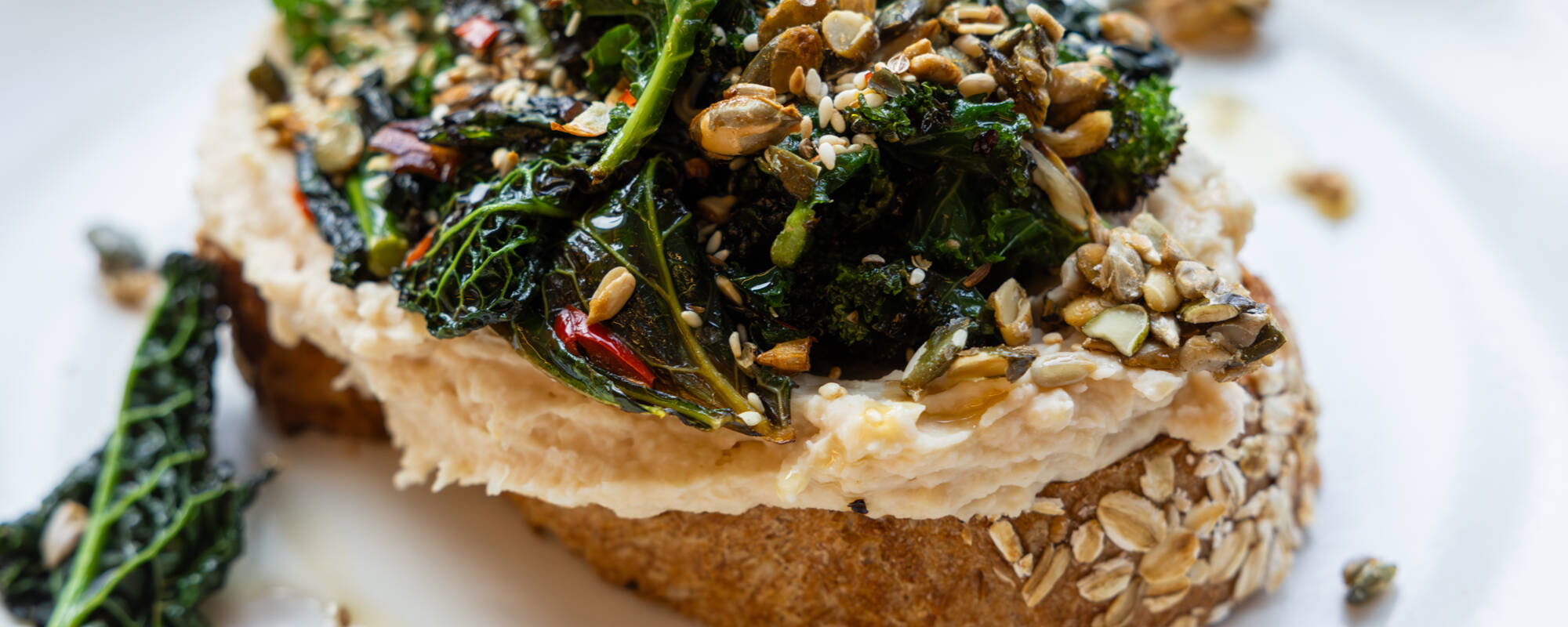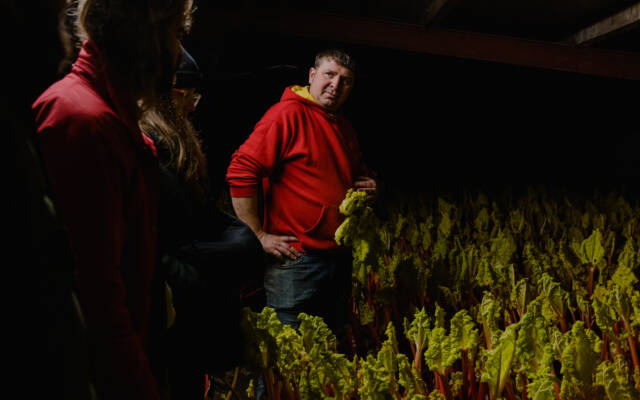
Sustainability in our Café

Locally Sourced and Seasonal
We work with a network of local and regional producers, chosen not just for the quality of their produce, but for their approach. We prioritise suppliers who value transparency, treat land and labour with care, and actively reduce their environmental impact.
Over 50% of our core ingredients come from within a 75-mile radius of the gallery. That means:
- Fewer food miles and lower emissions
- More support for independent businesses and farmers
- Stronger, more resilient regional food systems
We also build our menu around what’s in season. Rather than sticking to a fixed offering, we stay flexible and adapt to what’s fresh and available. This helps:
- Celebrate local diversity
- Reduce our reliance on high-impact imports
- Cut back on overproduction and food waste
Sustainability doesn’t stop at sourcing. All our takeaway packaging is fully compostable, including coffee cups, lids, and food containers, so even when food leaves the building, its impact doesn’t stay behind.

The Circular Life of Waste
Since August 2022, we’ve been working with ReFood, a Doncaster-based company that collects all our café food waste. Instead of going to landfill, it’s processed through anaerobic digestion – a system that transforms organic waste into:
- Renewable electricity
- Nutrient-rich fertiliser, used on UK farms
In the first five weeks alone, this partnership:
- Generated 105.3 kWh of electricity
- Prevented 0.18 tonnes of CO₂ emissions
- Contributed to nutrient cycling on British farmland
We continue to strive to send zero food waste to landfill by having food waste bins in our café and picnic area.
This system works because it’s built into our daily operations. Our café team separates food waste at the source and follows simple, practical routines to keep it consistent.
We’ve also seen unexpected benefits. Our general waste bins fill up more slowly, making things easier for staff and giving us a better view of what’s being thrown away. It’s sparked conversations across the gallery, not just about how we deal with waste, but how we can avoid creating it in the first place.

Our Suppliers
Some of the suppliers we work with include:
- Acorn Dairy – Organic, pasture-based milk from County Durham
- Wildfarmed – Grains and flour from regenerative agriculture
- Square Mile Coffee Roasters – Direct-trade coffee with full traceability
- Cryer & Stott – Artisan Yorkshire cheese and charcuterie
- Yorkshire Rapeseed Oil, Canton Tea, Folkington’s, R&J Yorkshire’s Finest – All chosen for their sustainability practices and regional roots
These are more than supply chains, they’re working relationships that help shape a fairer, lower-impact food culture.
What Are the SDGs?
The UN Sustainable Development Goals (SDGs) are a global set of 17 targets designed to end poverty, protect the planet, and promote wellbeing for all by 2030. They guide how organisations, governments, and individuals can act on climate, equality, education, and more.
SDG 7: Affordable and Clean Energy
Our food waste is turned into renewable biogas and fertiliser through our partnership with ReFood.
SDG 8: Decent Work and Economic Growth
By working with regional suppliers, we help support fair jobs and more resilient local food systems.
SDG 11: Sustainable Cities and Communities
We contribute to Wakefield’s local economy and offer a public food space shaped by sustainability and community values.
SDG 12: Responsible Consumption and Production
We source seasonally, avoid unnecessary packaging, and send all food waste to anaerobic digestion instead of landfill
Local sourcing and low-waste operations help lower emissions tied to food miles and landfill methane.




